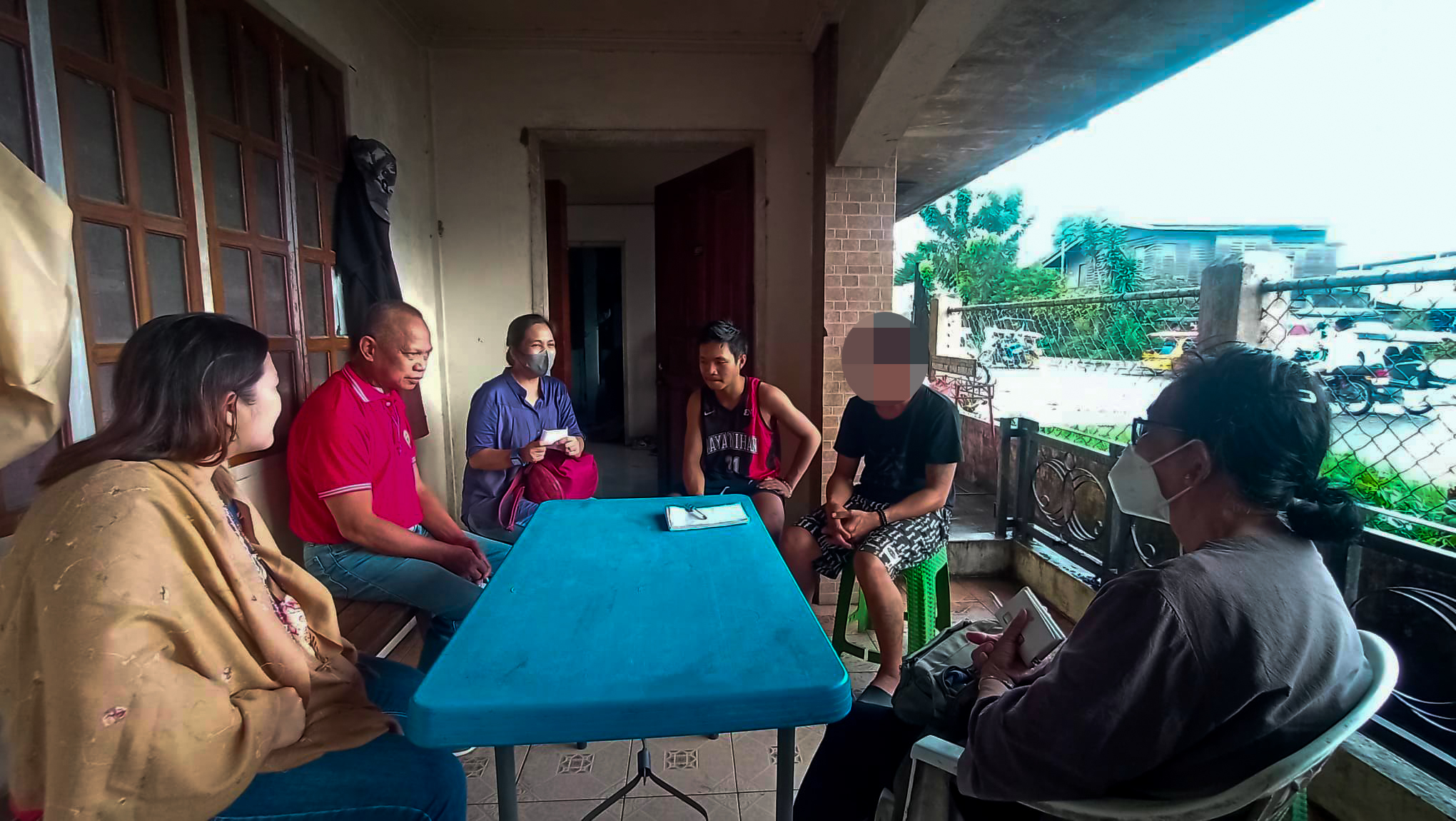Aftercare: A look into Jary’s life

Behind substance use disorder are people – people with real stories of struggle and triumph, such as Jary, a Koronadaleño who was involved in using and selling illegal drugs.
Jary and his wife have been separated from their three children for about six years. The youngest was only one year old when they were imprisoned for trafficking illegal drugs. After his release, he was ordered by the court to enroll in an 18-month Aftercare program, and his journey outside the prison had only just begun.
Not his real name, Jary is one of 16 Recovering Drug Dependents (RDDs) currently enrolled in the 18-month Aftercare Program of the City Anti-Drug Abuse Council (CADAC). The program includes consecutive group, family, and individual counseling sessions, as well as other holistic activities and interventions, to ensure that RDDs remain sober after leaving the rehabilitation or reformatory center.
Meanwhile, Jary told the counselors about his life inside the jail during home visits and family counseling. The most difficult challenge for them, he says, is providing for their families while in prison. However, the BJMP-Koronadal, where they were detained as a couple, provided a ray of hope when they were offered a job inside the prison- making bags and gown sewing. Despite his low income, Jary was able to send food to his children while they were in the care of his parents-in-law. He was also able to save a total of about P20,000.00 after his release.
Because Jary was a trustee inside the jail, he was referred to the Balay Silangan Reformatory Facility as an outpatient and later he was endorsed by the court to the city government. Currently, he is working as a delivery man for a certain businessman who runs poultry business.
When asked about his greatest regret of being separated from his family, Jary stated that her daughter became pregnant at a young age due to his absence, and that the loss of time with his children is also a significant loss for him. Counselors advised Jary to spend time with her children to make up for lost time, exercise his responsibility, and be a father to them.
RDDs were subjected to a series of lectures a few months ago in order to prevent them from resuming their old habits of using illegal drugs and associated vices such as smoking. They are also taught proper time management skills in order to be productive and avoid boredom. They were trained about proper hygiene and grooming. Spiritual counselors regularly visit RDDs in their homes as part of their spiritual development. In addition to one-on-one counseling, the Aftercare team visited their families to provide family counseling. As part of their community service, the RDDs planted trees in conjunction with the celebration of the 22nd Charter Anniversary.
Furthermore, psychological sessions are held to ensure their mental health, as well as regular drug testing to ensure their ongoing change. Physical activities and backyard gardening are also part of their homework.
On the other hand, a series of graduation ceremonies are being held in various barangays. Graduates of the Community Based Rehabilitation Program also completed a 6-month Aftercare program to help them avoid relapse. The aforementioned undertaking also complies with the Regional Oversight Committee’s new drug clearing requirement. The BADAC will apply for drug clearing status or the retention of their drug-cleared status once they have completed the barangay-based Aftercare.
CADAC Action Officer Col. Clemente Castillo (Ret.) joined the counselors and get involved in the program as well. He reminded the RDDs to never engage in former acquaintances and to never return to old vices. Further, Castillo also provided transportation assistance to RDDs who were unable to pay their transportation fee during group sessions.
Jary will have to prove his sobriety for more than a year, but in just a few months of being enrolled in the program, he has already taken the big step and leap to a promising tomorrow with his family alongside giving him the best support they can offer.
Following an RDD’s release from a rehabilitation or reformatory facility, the city government provides free aftercare, which is one of CADAC’s best practices. In the Province of South Cotabato, only LGU- Koronadal currently has an aftercare team that provides a holistic relapse prevention approach and strategy.